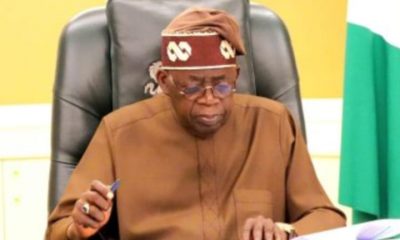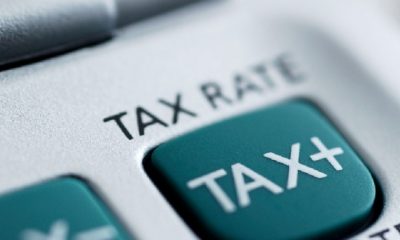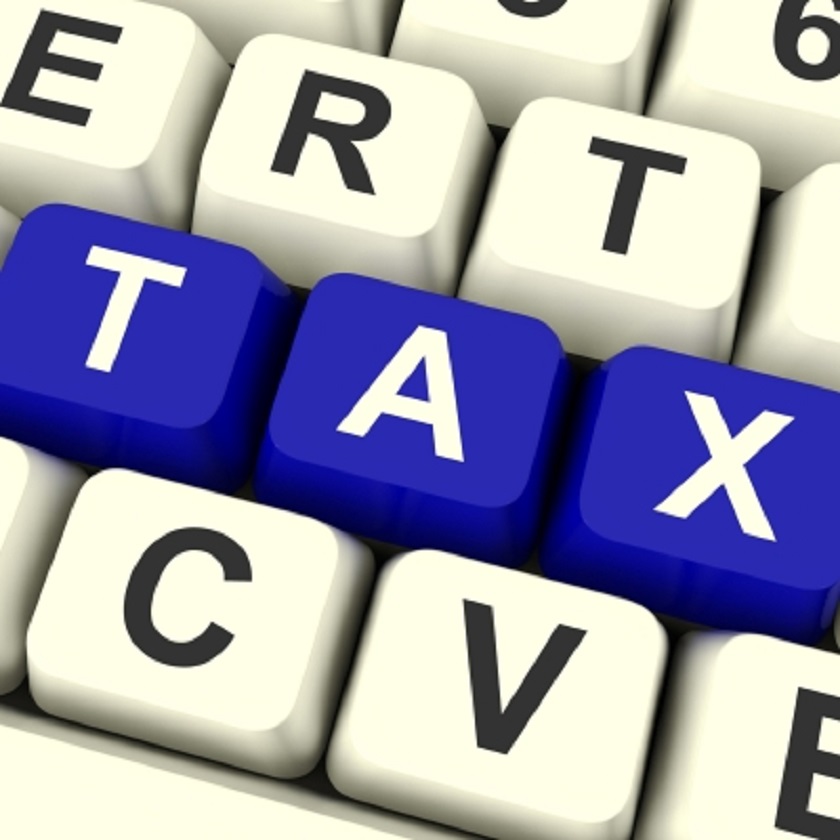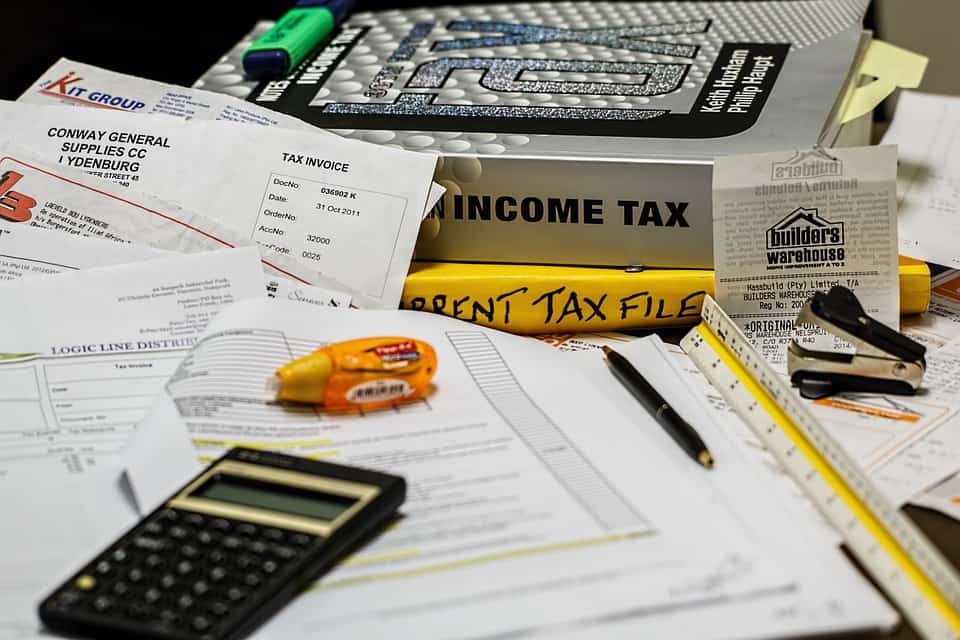Economy
Road Infrastructure Tax is to Bridge Nigeria’s Revenue Gap—Nami
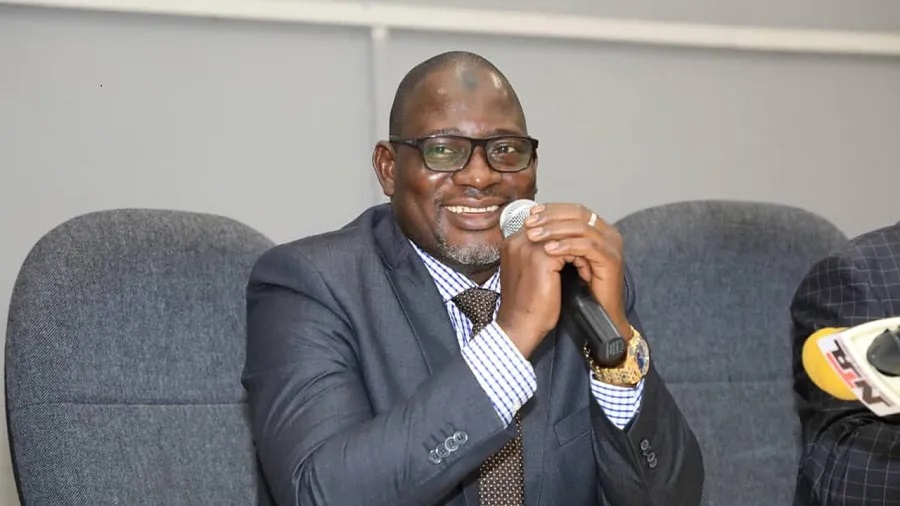
By Adedapo Adesanya
To help cover Nigeria’s revenue shortfall, the Federal Inland Revenue Service (FIRS) says it is proposing the introduction of road infrastructure tax by making the informal sector contribute to building a modern society.
The Executive Chairman of FIRS, Mr Muhammad Mamman Nami said this when a delegation of the Nigeria Union of Journalists (NUJ) led by its National President, Mr Chris Isiguzo, met him in Abuja.
Mr Nami said the proposed road tax to be administered by the FIRS will provide the government with adequate funding for road construction, rehabilitation, and maintenance, as well as providing the needed security for roads in the country.
According to the FIRS boss, “One quick and very important intervention required of you is in the area of the Road Infrastructure Funding Scheme that the country needs in order fix our roads and bringing the informal sector to the tax net.”
He noted that in many jurisdictions, road users pay for the use of road infrastructure, adding that this should not be seen as an additional burden on the people because it has the potential of making life better for all.
Speaking further, Mr Nami stated that Nigeria’s economy presently relies heavily on non-oil revenues to discharge its statutory responsibility of paying salaries and providing social amenities to the citizenry.
“Without the tax that you pay, governments at all levels would not be able to fulfil their mandate to the electorates. Tax money also helps to ensure the roads you travel are safe and always in good condition,” he said.
He disclosed that the recent rise in the price of crude oil ordinarily should have impacted positively on the Petroleum Profit Tax payable by oil-producing companies. However, it has shown otherwise due to some reasons.
On the challenges facing the service of delivering on its mandate, he said “crude oil production has been limited by OPEC quota. Nigerian OPEC quota as at July 2021 was about 1.5 million barrels per day as against its crude oil production budget of 1.8 million barrels per day.
“This is a shortfall of 300,000 barrels per day. Our average daily crude oil production is around 1.250 million barrels per day as against the allocated 1.5 million barrels per day OPEC quota which has resulted in a shortfall of almost 250,000 barrels per day mainly caused by crude oil theft and force majeure declared by some of the IOCs.
“The total shortfall to FGN budgeted production is about 550,000 barrels per day.
“Huge losses brought forward and un-recouped capital allowances reported by most of the companies due to production shut in and the fall in oil price in 2020 as a result of the covid-19 pandemic which reduced their revenue.“
He said with challenges in the oil and gas sector, reforms have been carried out by the agency with a visible impact on the economy such as the deployment of technology in tax administration to improve domestic revenue mobilisation in view of dwindling oil prices.
Mr Nami added that the service created 10 Value Added Tax, VAT, Regional Coordination Offices across the country to drive collection of VAT.
He said, “We have commenced the usage of VAT Form 002A for enrolment and tracking of branch offices of major VAT payers. This will certainly improve our VAT collection and capacity. We achieved 114.66 per cent of our VAT collection target in the first half of the year.
“It will interest you to know that the service collected a total of N4.2 trillion between January to September 2021. This feat was achieved as a result of the efficiency and effectiveness of the TaxProMax Solution and intelligence/data we gathered, mined and analyzed in the period under review.
“The service successfully facilitated both the mock and external audits for the ISO 27001:2013 certification of the Exchange of Information (EOI) centre, to meet international information security management standards.”
Economy
Flour Mills Supports 2026 Paris International Agricultural Show

By Modupe Gbadeyanka
For the second time, Flour Mills of Nigeria Plc is sponsoring the Paris International Agricultural Show (PIAS) as part of its strategies to fortify its ties with France.
The 2026 PIAS kicked off on February 21 and will end on March 1, with about 607,503 visitors, nearly 4,000 animals, and over 1,000 exhibitors in attendance last year, and this year’s programme has already shown signs of being bigger and better.
The theme for this year’s event is Generations Solution. It is to foster knowledge transfer from younger generations and structure processes through which knowledge can be harnessed to drive technological advancement within the global agricultural sector.
In his address on the inaugural day of the Nigerian Pavilion on February 23, the Managing Director for FMN Agro and Director of Strategic Engagement/Stakeholder Relations, Mr Sadiq Usman, said, “At FMN, our mission is Feeding and Enriching Lives Every Day.
“This is a mandate we have fulfilled through decades of economic shifts, rooted in a culture of deep resilience and constant innovation. We support this pavilion because FMN recognises that the next frontier of global Agribusiness lies in high-level technical exchange.
“We thank the France-Nigeria Business Council (FNBC), the organisers of the PIAS, and our fellow members of the Nigerian Pavilion – Dangote, BUA, Zenith, Access, and our partners at Creativo El Matador and Soilless Farm Lab— we are exceedingly pleased to work to showcase the true face of Nigerian commerce.”
Speaking on the invaluable nature of the relationship between Nigeria and France, and the FMN’s commitment to process and product innovation, Mr John G. Coumantaros, stated, “The France – Nigeria relationship is a valuable partnership built on a shared value agenda that fosters remarkable Intercontinental trade growth.
“Also, as an organisation with over six decades of transformational footprint in Nigeria and progressively across the African Continent, FMN has been unwaveringly committed to product and process innovation.
“Therefore, our continuous partnership with France for the success of the Paris International Agricultural Show further buttresses the thriving relationship between both countries.”
PIAS is one of the most widely attended agricultural shows, with thousands of people from across the world in attendance.
Economy
NEITI Backs Tinubu’s Executive Order 9 on Oil Revenue Remittances

By Adedapo Adesanya
Despite reservations from some quarters, the Nigeria Extractive Industries Transparency Initiative (NEITI) has praised President Bola Tinubu’s Executive Order 9, which mandates direct remittances of all government revenues from tax oil, profit oil, profit gas, and royalty oil under Production Sharing Contracts, profit sharing, and risk service contracts straight to the Federation Account.
Issued on February 13, 2026, the order aims to safeguard oil and gas revenues, curb wasteful spending, and eliminate leakages by requiring operators to pay all entitlements directly into the federation account.
NEITI executive secretary, Musa Sarkin Adar, called it “a bold step in ongoing fiscal reforms to improve financial transparency, strengthen accountability, and mobilise resources for citizens’ development,” noting that the directive aligns with Section 162 of Nigeria’s Constitution.
He noted that for 20 years, NEITI has pushed for all government revenues to flow into the Federation Account transparently, calling the move a win.
For instance, in its 2017 report titled Unremitted Funds, Economic Recovery and Oil Sector Reform, NEITI revealed that over $20 billion in due remittances had not reached the government, fueling fiscal woes and prompting high-level reforms.
Mr Adar described the order as a key milestone in Nigeria’s EITI implementation and urged amendments to align it with these reforms.
He affirmed NEITI’s role in the Petroleum Industry Act (PIA) and pledged close collaboration with stakeholders, anti-corruption bodies, and partners to sustain transparent management of Nigeria’s mineral resources.
Meanwhile, others like the Petroleum and Natural Gas Senior Staff Association of Nigeria (PENGASSAN) have kicked against the order, saying it poses a serious threat to the stability of the oil and gas industry, calling it a “direct attack” on the PIA.
Speaking at the union’s National Executive Council (NEC) meeting in Abuja on Tuesday, PENGASSAN President, Mr Festus Osifo, said provisions of the order, particularly the directive to remit 30 per cent of profit oil from Production Sharing Contracts (PSCs) directly to the Federation Account, could destabilise operations at the Nigerian National Petroleum Company (NNPC) Limited.
Mr Osifo firmly dispelled rumours of imminent protests by the union, despite widespread claims that the controversial executive order threatens the livelihoods of 10,000 senior staff workers at NNPC.
He noted, however, that the union had begun engagements with government officials, including the Presidential Implementation Committee, and expressed optimism that common ground would be reached.
Mr Osifo, who also serves as President of the Trade Union Congress (TUC), expressed concerns that diverting the 30 per cent profit oil allocation to the Federation Account Allocation Committee (FAAC), without clearly defining how the statutory management fee would be refunded to NNPC, could affect the salaries of hundreds of PENGASSAN members.
Economy
Dangote Cement Deepens Dominance, Export Activities With $1bn Sinoma Deal

By Aduragbemi Omiyale
To strengthen its domestic market dominance, drive its export activities, optimise existing operational assets and enhance production efficiency and capacity expansion, Dangote Cement Plc has sealed $1 billion strategic agreements with Sinoma International Engineering for cement projects across Africa.
The president of Dangote Industries Limited, the parent firm of Dangote Cement, Mr Aliko Dangote, disclosed that the deal reinforces the company’s long-term growth strategy and aligns with the broader aspirations of the Dangote Group’s Vision 2030.
According to him, Sinoma will construct 12 new projects and expand others for the cement organisation across Africa, helping to achieve 80 million tonnes per annum (MTPA) production capacity by 2030, while supporting the group’s overarching target of generating $100 billion in revenue within the same period.
Under the Strategic Framework Agreement, Sinoma will collaborate with Dangote Cement on the delivery of new plants, brownfield expansions, and modernisation initiatives aimed at strengthening operational performance across key markets.
The new projects include a new integrated line in Northern Nigeria with a satellite grinding unit, a new line in Ethiopia and other projects in Zambia/Zimbabwe, Tanzania, Sierra Leone and Cameroon. In Nigeria, Sinoma will also handle different projects in Itori, Apapa, Lekki, Port Harcourt and Onne.
The projects signal Dangote Cement’s sustained commitment to consolidating its leadership position within the African cement industry, while enhancing its competitiveness on the global stage.
Chairman of the Dangote Cement board, Mr Emmanuel Ikazoboh, during the agreement signing event in Lagos, explained that the new projects would enable the company to play a critical role in actualising Dangote Group’s Vision 2030.
The new projects, when completed, will increase Dangote Cement’s capacity and dominant position in Africa’s cement industry.
On his part, the Managing Director of Dangote Cement, Mr Arvind Pathak, said the agreement reflects the company’s determination to grow its investments across African markets to close supply gaps and support the continent’s infrastructural ambitions.
According to him, Dangote Cement is committed to making Africa fully self‑sufficient in cement production, creating more value and linkages, leading to increased economic activities and a reduction in unemployment.
-

 Feature/OPED6 years ago
Feature/OPED6 years agoDavos was Different this year
-
Travel/Tourism10 years ago
Lagos Seals Western Lodge Hotel In Ikorodu
-

 Showbiz3 years ago
Showbiz3 years agoEstranged Lover Releases Videos of Empress Njamah Bathing
-

 Banking8 years ago
Banking8 years agoSort Codes of GTBank Branches in Nigeria
-

 Economy3 years ago
Economy3 years agoSubsidy Removal: CNG at N130 Per Litre Cheaper Than Petrol—IPMAN
-

 Banking3 years ago
Banking3 years agoSort Codes of UBA Branches in Nigeria
-

 Banking3 years ago
Banking3 years agoFirst Bank Announces Planned Downtime
-

 Sports3 years ago
Sports3 years agoHighest Paid Nigerian Footballer – How Much Do Nigerian Footballers Earn


